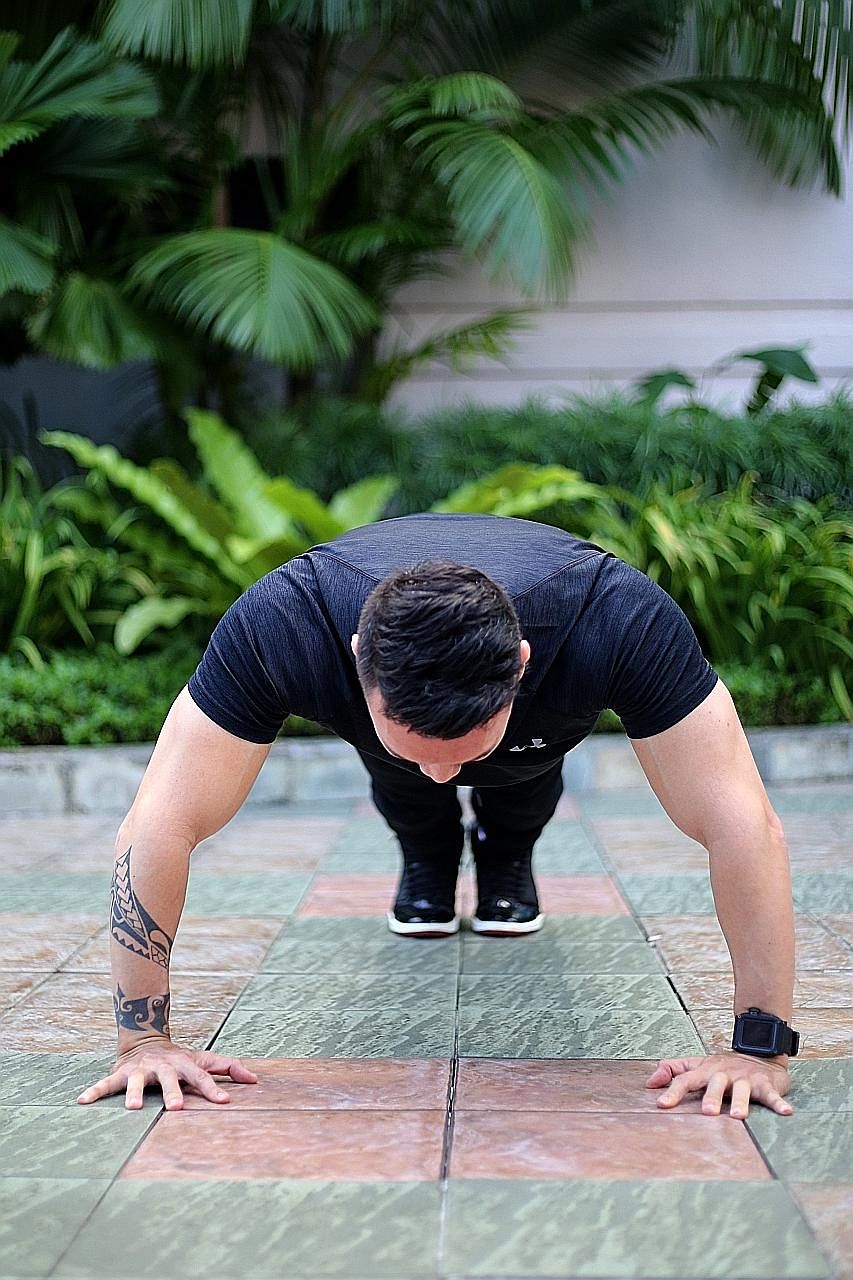NEW YORK • Count your blessings if the number of push-ups you can do add up to an impressive number.
A new study in medical journal Jama Network Open finds that men who can breeze through 40 push-ups in a single exercise session are substantially less likely to experience a heart attack or other cardiovascular problem in subsequent years than men who can complete 10 or fewer.
The results suggest that push-up ability might be a simple, reliable and DIY-in-your-living-room way of assessing heart health.
Cardiovascular disease is the most common cause of death globally. Heart attacks and strokes also lead to disability, lost work time and circumscribed lives and abilities.
But avoiding or treating cardiovascular disease requires recognising that it might have begun or is on the horizon. Many medical tests of heart health, such as treadmill exercise stress testing or heart scans, are expensive and complicated and can be difficult to interpret.
Many of these tests are also generally designed to pick up heart disease after it has started, not predict a likelihood that it might develop.

Meanwhile, mathematical risk scores that evaluate information about a person's weight, cholesterol profile, smoking history and other data are predictive, but in a way that is broad, impersonal and abstract.
That void prompted researchers at Harvard University, Indiana University and other institutions to consider the health of a group of more than 1,500 Indiana firefighters.
They reported each year to a single clinic in Indiana for a check-up that included standard assessments of weight, cholesterol, blood sugar and other data.
They also completed a sub-maximal treadmill stress test that estimated their endurance capacity.
The researchers were originally most interested in that last measurement. Plenty of past studies have linked high aerobic fitness with a reduced risk for later heart disease and vice versa.
The researchers thought they might be able to quantify how well the treadmill test predicted heart problems by using the database of firefighters' health information.
They gathered information about each man's stress test results. They recorded any cardiovascular problems reported to or uncovered by clinic physicians in the 10 years after each person's first appointment.
The data about heart problems was fairly comprehensive, since the firefighters needed their physician's approval to return to work after even minor heart concerns.
The researchers planned to compare stress test results to subsequent cardiovascular problems to get a sense of how prescient the treadmill testing might be.
Then, almost incidentally, the researchers noticed that more than 1,100 of the firefighters had also completed push-up tests during the yearly exams. A clinic employee counted how many push-ups each man could do.
Since they had the push-up data, the researchers slipped it in as a second data set in their examination of current fitness and later heart problems, categorising the men by how many push-ups they could complete: zero to 10; 11 to 20; 21 to 30; 31 to 40; and 40-plus.
They then ran numbers.
To their surprise, push-up capability proved to be a better predictor, statistically, of future heart problems than the treadmill tests.
Men who could complete at least 11 push-ups had less risk of developing heart problems in the following decade than those who could do fewer than 10.
Those who could get through 40 or more push-ups had 96 per cent less risk of heart problems in the next 10 years than those who quit at 10 or fewer.
The findings suggest that push-up capability might be an easy-to-use marker of cardiovascular disease risks, the researchers said, at least in men who resemble the firefighters.
Of course, this study was observational. It can show that more push-ups are linked to fewer heart problems, but not that arm strength directly improves heart health or whether becoming able to do more push-ups will drop the risk for heart problems over time.
But "muscular strength is one component of good fitness", said Harvard Medical School professor Stefanos Kales, senior author of the new study.
Push-up proficiency probably also indicates an interest in healthy eating, regular exercise and normal weight, he noted, all of which could contribute to stronger hearts.
Best of all, push-up testing is simple, requiring only the ability to count.
If that count should end before 10, however, you may want to talk to your doctor or a trainer about how to increase your fitness and strength, and perhaps better protect your heart, Prof Kales said.
NYTIMES
